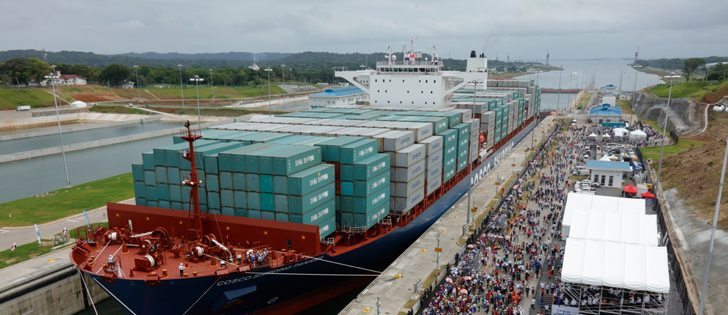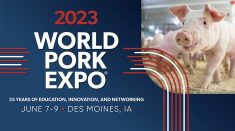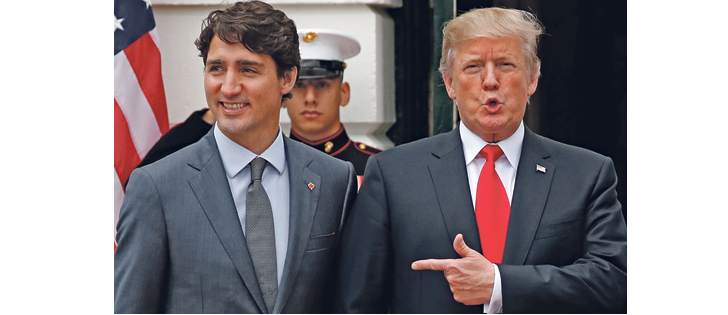Canadian producers are unlikely to see any impact from a European Union-United States trade agreement
Canada is unlikely to benefit from the European Union’s decision to exclude agriculture from free trade talks with the United States, says an economist.
European Union member states gave the European Commission the green light to start formal free trade negotiations last week, but only on eliminating tariffs on industrial products.
The EU members insist any agreement would exclude agricultural products.
That provoked an angry response from U.S. President Donald Trump.
During an April 15 roundtable discussion on the economy and tax reform in Burnsville, Minnesota, Trump said the EU barely takes any U.S. agricultural products yet they sell “anything they want” in the U.S. market.
Read Also

Critical growing season is ahead for soybeans
What the weather turns out to be in the United States is going to have a significant impact on Canadian producers’ prices
Trump said he has told European officials that has to change.
“I said, frankly, ‘look, if it doesn’t change we’re going to tariff all of your cars and everything else that comes in. You can’t treat our farmers that way,’” he said.
Canada already has a free trade agreement with the EU that entered into force on Sept. 21, 2017.
The agreement covers a variety of agricultural goods but it essentially boils down to a few main products, according to Al Mussell, research lead with Agri-Food Economic Systems.
“A lot of people say the CETA agreement with the EU was basically a pork and beef for cheese deal,” he said.
However, Canada has failed to capitalize on the preferential tariffs for beef and pork into that expansive market.
“We haven’t made use of that,” said Mussell.
That is because Canada also has preferential pork and beef tariffs compared to the U.S. into the Japanese market where it already has an established business.
It is a no-brainer for exporters choosing between having to meet EU processing specifications and conducting extensive market development work in that market versus building on the existing thriving business in Japan.
“I’m going to Japan,” said Mussell.
If Canada wanted to expand its reach in the EU, there would have to be an increase in the beef cow and sow herds and in processing capacity that would meet EU specifications.
Exporters would have to build networks in the EU and conduct extensive market promotion activities to build demand for their products.
“We don’t have a real beachhead there,” he said.
The U.S. Department of Agriculture conducted an analysis in 2015 of what economic impact a Transatlantic Trade and Investment Partnership (TTIP) deal with the EU would have on agriculture if the sector was included in the pact.
The study determined that the elimination of tariffs and non-tariff barriers would increase U.S. agricultural exports to the EU by US$9.6 billion per year.
Pork would be the biggest beneficiary with $2.4 billion in increased sales followed by beef at $1.9 billion.
U.S. soybeans ranked third on the list at $861 million, which is why the American Soybean Association was bitterly disappointed with the EU’s decision to exclude agriculture.
“We had high hopes that some of the longstanding concerns regarding the EU’s policies on agricultural biotechnology and on revising the EU’s pesticide laws would be addressed,” ASA president Davie Stephens said in a news release.
“With the EU now formally excluding ag, it will be difficult if not impossible to address these non-tariff trade barriers that severely inhibit trade between our countries.”
Mussell said the exclusion of agriculture in the pact is a big blow to the U.S. soybean sector, which is desperately looking for new sources of demand in the wake of the trade war with China and African swine fever.
“By all indications the Chinese have just simply switched to Brazil and Argentina as their anchor suppliers of soybean imports,” he said.
The exclusion of agriculture has positive and negative connotations for Canadian farmers.
It will keep a lid on U.S. soybean prices, which influence Canadian soybean and canola prices.
“That’s the argument that this is perhaps problematic for us,” said Mussell.
Conversely, if the U.S. does not get enhanced soybean access, it could help support canola demand in the EU.


















